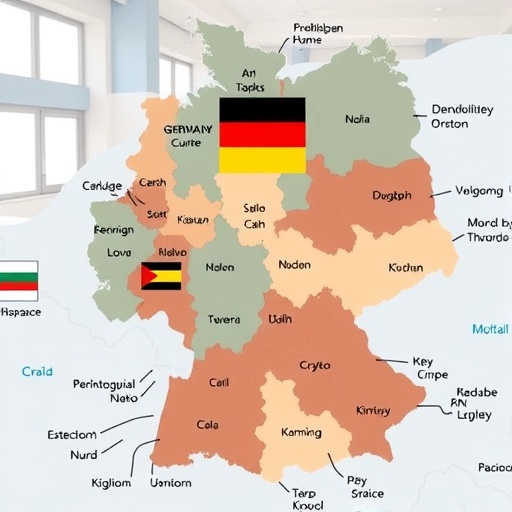In recent years, the importance of linguistic diversity in educational settings has emerged as a focal point in the discourse surrounding teacher training. One notable study exploring this phenomenon is a survey conducted in Northern Germany’s vocational schools. The researchers aimed to evaluate how well current teacher training programs address the realities of linguistic diversity among students. This study, titled “Teacher training for literacy: survey on linguistic diversity in Northern Germany’s vocational schools,” by Wendt, Börsel, and Neumann, sheds light on critical areas for improvement in teacher preparedness.
As globalization continues to influence migration patterns, classrooms are increasingly becoming melting pots of cultures and languages. This significant demographic shift poses unique challenges for educators. The intersection of linguistic diversity and educational attainment highlights the need for tailored pedagogical strategies that cater to a wide range of linguistic backgrounds. The Northern German context, characterized by its rich tapestry of languages and dialects, provides an insightful case study for examining the efficacy of teacher training programs in developing literacy skills among diverse student populations.
The findings of the survey reveal substantial gaps in current teacher training when it comes to preparing educators to handle diverse linguistic needs. Many teachers report feeling ill-equipped to engage with students who speak different languages at home, let alone integrate these linguistic backgrounds into their teaching practices. This raises critical questions about the efficacy of existing curricula and the adequacy of teacher support systems in addressing these needs.
In addition to identifying shortcomings, the study emphasizes the importance of professional development opportunities for teachers. Continuous education and training focusing on linguistic diversity can empower educators with the tools they need to foster an inclusive learning environment. This aspect of teacher training cannot be overstated, as it directly correlates with students’ literacy outcomes and overall academic success.
Moreover, the survey highlights that many educators struggle to employ culturally responsive teaching methodologies. These methodologies are especially crucial in vocational schools, where students often seek practical skills that align with their career aspirations. Teachers must be adept at recognizing the unique linguistic and cultural assets that each student brings to the classroom and leverage these strengths to enrich the learning experience for all.
Understanding the complexities of language acquisition is also paramount. For many learners, particularly those from immigrant backgrounds, navigating between their native language and the language of instruction can be a daunting task. This linguistic juggling act often results in various cognitive challenges that can hinder literacy development. Addressing these concerns within teacher training frameworks is essential for optimizing student engagement and achievement.
Another compelling aspect of the research is the role of collaboration among educators. The study suggests that creating platforms for teachers to share their experiences and strategies can foster a community of practice that enhances collective efficacy. Such collaborative efforts can lead to the development of innovative approaches to teaching that celebrate linguistic diversity rather than view it as an obstacle.
The researchers also advocate for a more integrated approach to language education within vocational training programs. By embedding language learning into vocational curricula, educators can ensure that students not only acquire relevant technical skills but also the language proficiency required to succeed in their chosen fields. This holistic approach positions literacy as a foundational element of vocational training and serves to promote long-term career success.
Critically, the study calls for a shift in policy to support these educational transformations. Policymakers must recognize the urgency of integrating linguistic diversity into teacher training and vocational education frameworks. This requires allocating resources towards training initiatives, developing inclusive curricula, and fostering partnerships between educational institutions and linguistic communities.
In conclusion, the survey conducted by Wendt, Börsel, and Neumann unveils significant insights into the current state of teacher training for literacy amidst linguistic diversity in Northern Germany’s vocational schools. By addressing the identified gaps and advocating for a comprehensive approach that includes professional development, collaboration, and policy support, the study provides a roadmap for enhancing educational outcomes for diverse student populations. As we continue to navigate the complexities of our increasingly diverse classrooms, the recommendations from this research should serve as guiding principles in shaping the future of teacher training and literacy education.
Subject of Research: Teacher training for literacy in relation to linguistic diversity.
Article Title: Teacher training for literacy: survey on linguistic diversity in Northern Germany’s vocational schools.
Article References:
Wendt, C., Börsel, A. & Neumann, A. Teacher training for literacy: survey on linguistic diversity in Northern Germany’s vocational schools.
Discov Educ 4, 323 (2025). https://doi.org/10.1007/s44217-025-00625-0
Image Credits: AI Generated
DOI: 10.1007/s44217-025-00625-0
Keywords: literacy, teacher training, linguistic diversity, vocational education, Northern Germany.




